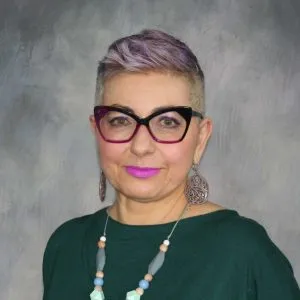Editorial Note:
This profile of Dr. Catherine van de Ruit is brought to you through a joint collaboration between Applied Worldwide and Sociologists for Women in Society (SWS). Thank you to SWS and all those who made valuable contributions to the Profiles in Applied & Clinical Sociology series.
This profile is presented as part of a larger project with the intentions of: 1) providing students with examples of applied sociology, 2) providing market value to sociological skills and services, and 3) promoting the work of individual sociological practitioners and organizations. Learn more about Sociologists for Women in Society at SocWomen.Org.
Catherine van de Ruit, PhD
Catherine van de Ruit is a medical sociologist and assistant professor in Health and Exercise Physiology at Ursinus College, but her sociological work doesn’t stop in academia. Her journey to applied sociology began while earning a Master’s degree in Development Studies from the University of KwaZulu-Natal, South Africa and continued by later earning her PhD in Sociology from the University of Pennsylvania.
Dr. van de Ruit has “a background in qualitative health research and medical sociology” partially through “a postdoctoral research [position] with the Armstrong Center for Patient Safety at Johns Hopkins University [which gave her] an opportunity to gain exposure to applied research in clinical settings.” When we asked Dr. van de Ruit to describe her applied work, she told us:
I partner with clinicians in health care settings in both South Africa and the United States. This collaborative research focuses on clinician’s urgency to improve the quality of health care in their respective agencies. In the United States I was on a qualitative team working in collaboration with clinicians and health services researchers at the Armstrong Institute for Patient Safety at Johns Hopkins University conducting and evaluating the impact of a surgical safety quality improvement project.
In South Africa, I partner with emergency physicians in the Western Cape Province working in public emergency centers. The focus of this study is the consequences of patient crowding on the quality of patient care and clinician burnout.
Catherine van de Ruit, PhD
Read the full interview with Catherine van de Ruit below for more insight and advice!
Using Sociology in Practice
In general, how do you use sociology in practice?
First, I collaborate with clinicians in disseminating research to policy relevant journals and conference. Second, undergraduate students planning to enter health professions in the future assist me in my research. Their involvement in my work gives them exposure to social problems in clinical settings and skills in qualitative research methods.
How do you use sociological research methods in practice?
Qualitative research methods are central to my research practice in both South Africa and the United States.
How do you use sociological theory in practice?
My research is in conversation with sociological and anthropological scholarship on global health. Medical sociology traditionally has been applied to health settings in the Global North. There are incredible opportunities to apply sociological theories of health and illness to settings in the Global South, and also build theory by testing assumptions about social process and problems as they play out in diverse contexts.
Lessons for Future Practitioners
What types of courses should undergraduate students take in preparation for a career similar to yours?
Social theory classes, research methods, classes that introduce experiential learning techniques enabling students to gain real world insight outside of the classroom.
What types of courses should graduate students take in preparation for a career applied sociology?
Interdisciplinary classes across the social sciences and humanities. Research methods. Opportunities to conduct research in applied settings in partnership with practitioners in the field
What types of experiences should undergraduate students seek in preparation for a career similar to yours?
Internships and shadowing opportunities are invaluable.








